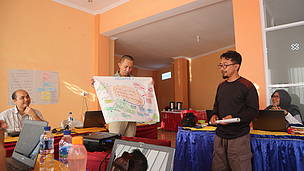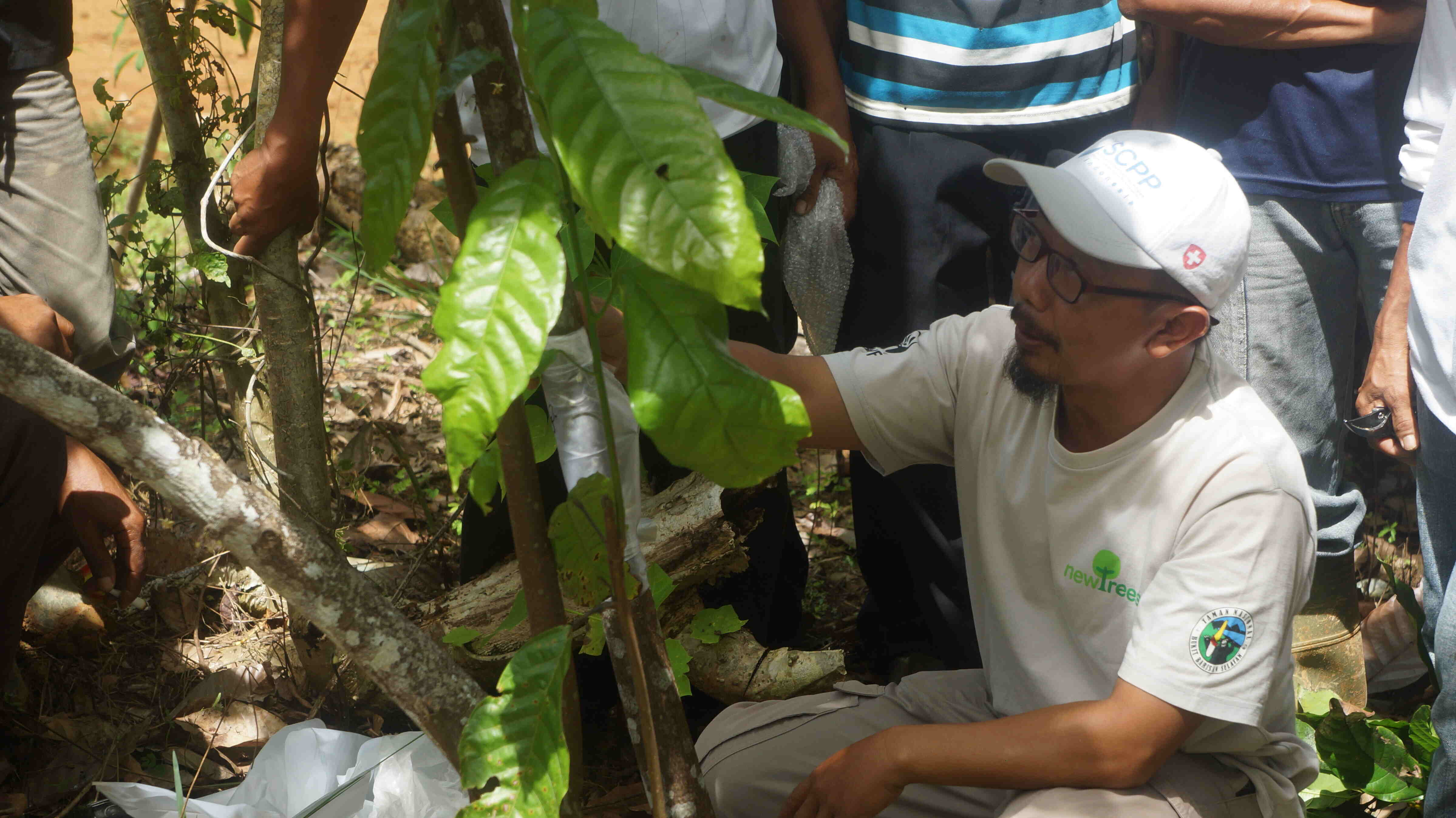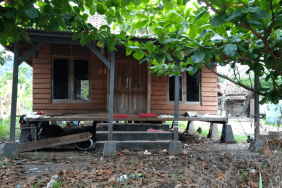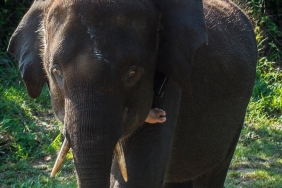CONSERVATION HEROES FROM THE WEST COAST
Not many people know that his work in introducing sustainable farming techniques to communities in Lampung began with his experience working on land inside a Limited Production Forest, which he admitted was done unsustainably. This incident became a flashback that changed his behavior and was able to become a good example for the surrounding community. In 2015, he was honored as a conservation hero by the Regent of Pesisir Barat. Mahmudi is the conservation hero of Pesisir Barat. Born in Central Java 43 years ago, Mahmudi spends his days farming in Sukamaju Village, Ngaras, West Pesisir Regency. He finally met the WWF Indonesia team during a meeting to form a farmer group in his village in 2005.
Through his brief introduction with the WWF team, he learned sustainable agriculture field school with the main commodities of cocoa and coffee. The beginning of his interest in the field school method introduced by WWF is because according to him, in addition to the material about environmentally friendly cultivation, there are also practices that are suitable for implementation at the farm level. According to him, farmers are easily bored if too much material or theory is given. The knowledge gained in the field school did not necessarily make him complacent. He began to apply it on his own land and did trial and error until finally his struggle paid off. He managed to increase his cocoa production from 0.5 kg/rod to 1.5 - 2 kg/rod. He harvests cocoa twice a year. In addition, his average coffee production also showed an increase from 0.4 kg/stem/year to 1 kg/stem/year. Not only that, according to him, the field school technique has succeeded in reducing production costs because he produces his own fertilizer and pesticide. The same success has been felt by other farmers in his area who have applied sustainable principles in their cultivation patterns.
Through a collaboration between WWF, PT Krakakoa, and the cocoa farming community in Pesisir Barat, Mahmudi trained the community to make fermented cocoa that will later be purchased by PT Krakakoa. This has added value to the farmers' cocoa products as the fermented product is valued at Rp 60,000/kg, when the price of raw cocoa in the market is only around Rp 20,000 - 30,000/kg.
Based on his knowledge and experience in implementing sustainable cultivation patterns, he joined the training of trainers (ToT) initiated by WWF to attract farmers who are considered to have the skills to become facilitators of organic farming field schools. He then joined WWF as a coffee field school facilitator in 2010 and 2011 through the conservation coffee program also supported by NESTLE in West Lampung and Tanggamus districts.

As a facilitator, he feels that the most fundamental challenge in facilitating farmers is the extent to which we have practiced the material we convey, not to convey material that we ourselves have never done. It will be a boomerang for him if there are participants who ask back "Have you done it yourself?"
For him, the most interesting experience as a field school facilitator is when he works with farmers and the participants do not easily believe what he says. He feels that this is a challenge in itself. Usually farmers want proof and once they see real evidence, they will believe whatever is said. This story happened during a coffee field school activity conducted in Ngarip Village, Ulu Belu District, Tanggamus.
His experience facilitating farmers at WWF then led him to take part in other places, namely at PT Krakakoa as a cocoa field school facilitator and quality control for Tanggamus and West Coast areas from 2014-2016. Then in 2017 until early May 2018, he joined Swisscontact in the SCPP (Sustainable Cocoa Production Program) program as a Field Facilitator (FF) before rejoining WWF since May 2018 through the Conserving Priority Habitat in Bukit Barisan Selatan Landscape Program as a Community Facilitator (CF).
In the beginning, it was not easy for him to apply sustainable farming patterns. He admitted that he had worked on a garden in a HPT (Limited Production Forest) location located in Ujung Pandang Hamlet, Sukamaju Village. Due to limited knowledge at the time, he cleared the land in accordance with local traditions, namely by cutting down trees in the forest and then waiting for a month until the land was dry and then burning. The remains of the fire were cleaned by collecting them and burning them again. After the land is clean and the rainy season comes, the land is ready to be planted with upland rice. He admits that this unsustainable land clearing pattern has damaged the forest. He then realized that land clearing by burning is an inappropriate method that endangers the ecosystem and is not sustainable for future generations.
This incident became a whip and taught him an important lesson. Now that he knows that what he has been doing is not right, he feels the need to improve his cultivation methods to be more environmentally friendly by not burning the land and reducing the use of chemicals. He added that it would be better if it is done collectively so that the positive impact can be felt by the surrounding community.
His skills in facilitating farmers have paid off. He returned to work with WWF as a Community Facilitator through the KfW program. A consortium program involving WWF, WCS, and YABI in supporting the rescue of priority habitats for key animals in TNBBS. He assisted 2 villages in Pesisir Barat Regency, including Paku Negara Village, Pesisir Selatan Sub-district and Labuhan Mandi Village, Way Krui Sub-district.
Through his involvement in the forest rescue program in Bukit Barisan Selatan National Park, he hopes that the management of TNBBS will improve, with no more encroachment, wildlife poaching and illegal logging. He also hopes that buffer communities will get serious attention in terms of buffer zone management, especially those in the HTR (Community Plantation Forest) area because currently their status is unclear. This uncertainty is caused by HTR licenses that are currently controlled by cooperatives where local communities are not part of it. He requested that the community be encouraged to manage HTR independently.





